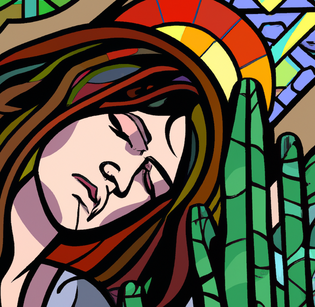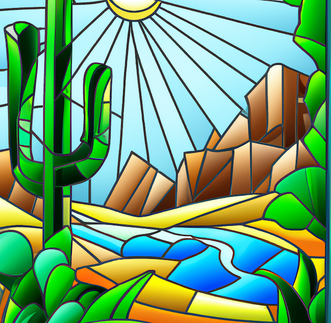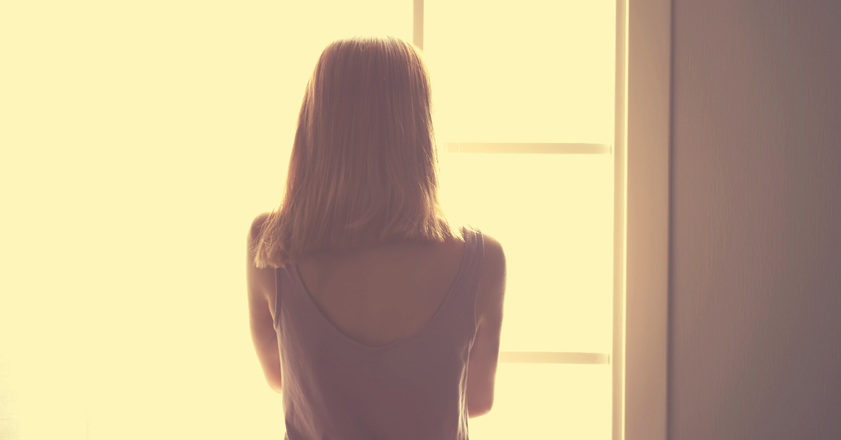|
Emilia had always been a creature of spring. The fresh blooms, soft pastels, and the celebration of Easter — these were the things that filled her heart with a profound sense of joy. But as spring gradually gave way to summer, and the blossoms yielded to a fiery red sun, Emilia could feel a familiar exhaustion creeping into her spirit. In Phoenix, Arizona, where she lived, the summers were relentless. Come late June or early July, temperatures regularly soared above 110 degrees or more for weeks at a time. The sun blazed and the desert landscape outside her window seemed to ripple and waver in the blistering heat. The city that had been her beloved home began to feel more like a furnace. Emilia, once a social butterfly, started to retreat indoors to escape the sweltering heat. Her weekends, once bursting with excitement as she explored the trails of Piestewa Peak or enjoyed outdoor picnics at Encanto Park, had now been reduced to a monotonous existence within the confines of her small air-conditioned apartment.  There are ways to beat the "sunshine blues" There are ways to beat the "sunshine blues" Emilia noticed her mood shift as the temperatures rose. Restlessness pervaded her nights, and her appetite dwindled as well. She could not shake off an uncharacteristic irritability that tinged her social interactions, even with the people she cared about. A sense of profound sadness and unease would wash over her for no discernible reason. It felt as if the sun that she once worked and played under was now a never-ending heat lamp under which she wilted. She had heard about Seasonal Affective Disorder (or SAD), but her knowledge was limited to the "winter blues" common in colder climates. Living under the long summers of Phoenix, it never crossed her mind that she could be facing a reverse form of the disorder until she stumbled upon an article while mindlessly scrolling through her phone one sleepless night. She read about the symptoms of Reverse Seasonal Affective Disorder and it all began to make sense.
It can even impact an individual's spirituality. A person's relationship with God is often a source of solace and hope, a wellspring from which they derive strength and resilience. However, pervasive feelings of anxiety, restlessness, and depression associated with RSAD can contribute to feelings of disconnection from oneself, one's family, friends, and even one's faith. If a person is already dealing with some type of spiritual struggle, such as dealing with grief or loss, the physiological effects of RSAD can compound the already existing feelings of dispair and isolation. Strategies for Dealing with RSAD So, how can one combat summertime sadness? The strategies for dealing with summer-onset RSAD are somewhat similar to those dealing with winter-onset SAD:
 Armed with this newfound knowledge, Emilia decided to confront her summertime sadness. She first visited her doctor who talked to her about possible antidepressant solutions. Even if she wasn't ready to try medication, her doctor recommended that she see a therapist or counselor. Being a person of faith, Emilia sought advice from a Christian counselor who helped her implement various spiritual resources and practical strategies. Blackout curtains were hung, sleep schedules were established, a daily devotional time was implemented, and an exercise routine was followed. Emilia also tried her best to maintain her social connections by connecting with friends over iced coffee and getting more involved in summertime activities at her church. Emilia even began to appreciate the parts of summer that she enjoyed. Pool parties with her family and tubing down the Salt River with friends helped her stay connected (and cool). She was also able to escape the heat by taking weekend trips up north to Prescott and Flagstaff where temperatures were cooler. When she was at home, she learned to appreciate the early mornings before the sun claimed the sky and decided to add a devotional time to her morning routine. She also looked forward to late evenings when the sky filled with dark but welcome rain clouds from the evening monsoons. She'd sit on her balcony at these times, soaking in the cool monsoon breezes, letting the tranquility wash over her like soothing rain. These became her moments of meditation, of connection to the world outside her doors. It was not an easy journey. There were days when the weight of the blazing heat seemed too much, days when the shadows of her mind seemed longer than the shadows cast by the noonday sun. But every morning, she reminded herself that it was not a battle to be won in a day. It was a process, a dance with the sun, a rhythm she had to find and follow. The weeks continued and before long, cooler temperatures returned just in time for her to hang up her autumn decorations. Through her struggle with RSAD, Emilia learned to navigate the ebb and flow of her moods. She learned the importance of understanding and listening to herself (body and soul), of finding beauty in unexpected places, and of finding strength in vulnerability. Most importantly, she learned that even the harshest of summers give way to gentler seasons, and it was her task to weather the storm, to keep going even under the harshest sun, until the skies softened once again. RSAD is one example of how deeply our environment and health are intertwined. By understanding the signs and symptoms, as well as possible solutions, we can better manage the effects this conditions may have on our lives. If you or a loved one might be dealing with RSAD, don't hesitate to reach out for help. You are worth it. And remember, you're not alone on this journey. If you're looking for support, we at Prism Counseling & Coaching are just a phone call away and would be more than happy to explore counseling options with you. Here's to brighter days ahead, regardless of the season. The contents of this article are for informational purposes only and do not constitute medical advice; this content is not intended to be a substitute for professional medical advice, diagnosis, or treatment. Always seek the advice of a physician or other qualified health provider with any questions you may have regarding a medical condition. Never disregard professional medical advice or delay in seeking it because of something you have read in this article.
Comments are closed.
|
Article Topics
All
Archives
July 2023
|
We're ready to help. Let's begin.
Peoria LocationInside State Farm
9299 W Olive Ave Ste 212 Peoria AZ 85345 |
Phoenix LocationInside CrossRoads UMC
7901 N Central Ave Phoenix AZ 85020 |
About |
Services |
EducationPrograms
ACPE Spiritual Care Specialist Pastoral Counseling Apprenticeship Deconstruction Course Free Grief Training Contact |
We're ready to help. Let's begin.
© 2024 Prism Counseling & Coaching. All Rights Reserved.
Christian DISC® is a registered trademark of Prism Counseling & Coaching.
Christian DISC® is a registered trademark of Prism Counseling & Coaching.

